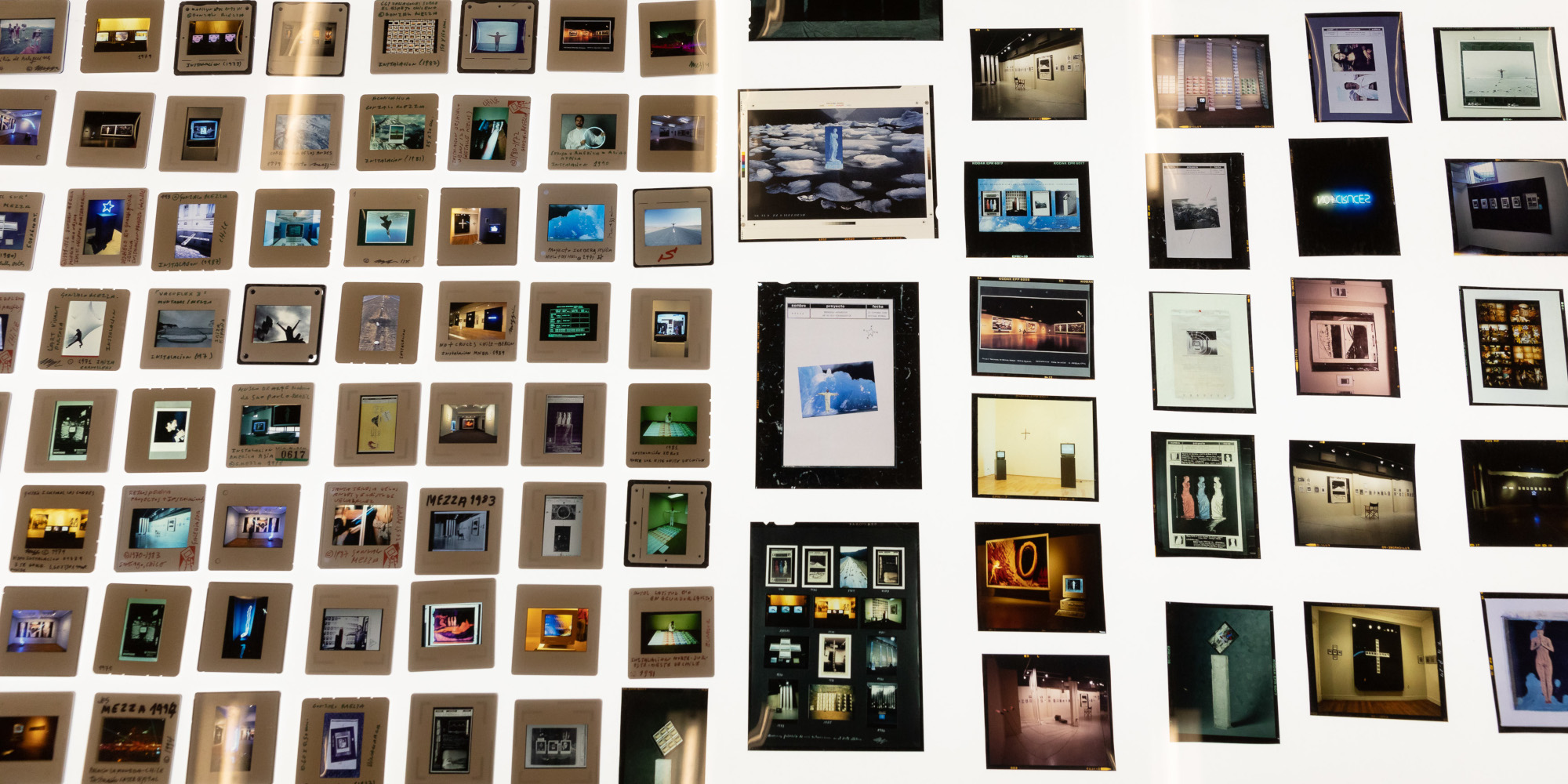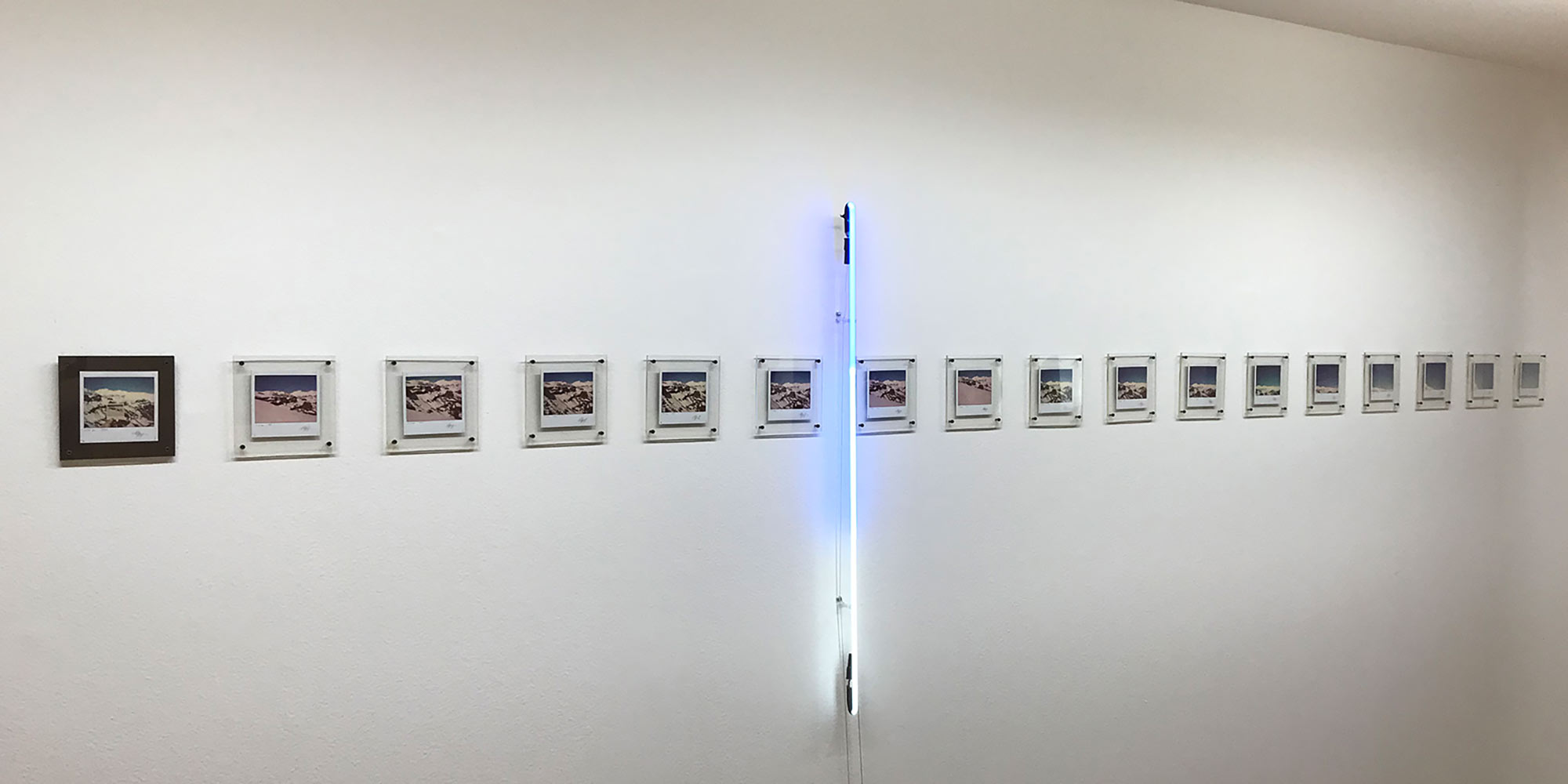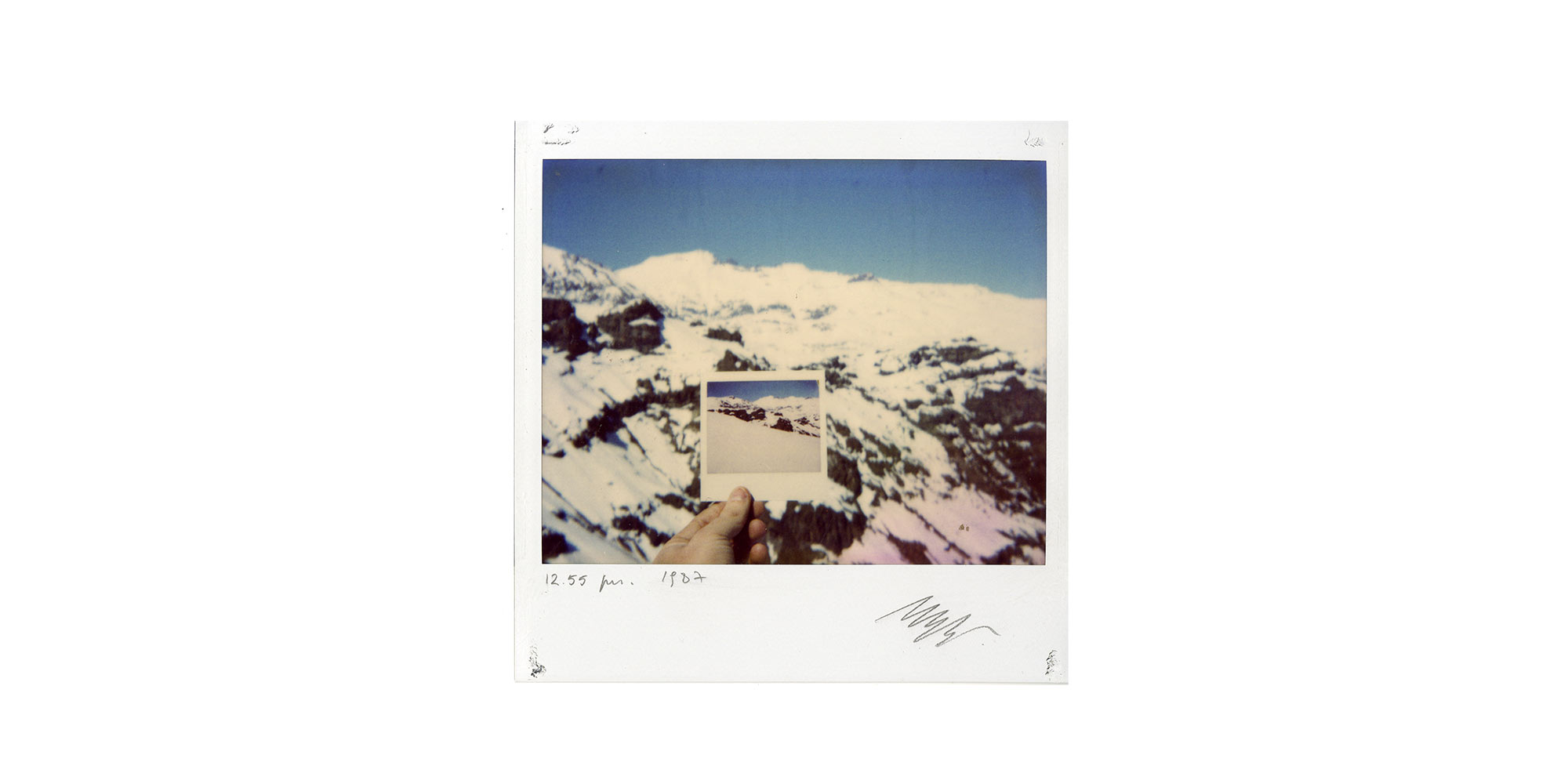Curator: Sebastián Vidal Valenzuela
Archivo Liberado is a curatorial project that reviews the archives and works (1969-1990) by the Chilean artist, pioneer of media art, Gonzalo Mezza (1949-). For sixty years, his innovative work has been focused on the implementation of media technologies in Chile. He has stood out for critically modifying the visual language, through video art, performance, installation, Polaroid photography, photocopying and the use of computers. He was one of the first to carry out this type of practice in Chile and beyond. His poetic approach to the landscape, his reformist reading of art history, photographic exploration and multimedia installation, among other topics, led him to consolidate a body of work that opens complex readings about ecology, geopolitics, spirituality and media culture. This exhibition highlights how documents and works are combined in a conceptual proposal that configures a retroactive archive, as input for the artist himself.

Archivo Liberado was exhibited from the last days of March until the beginning of May 2019, in D21 Gallery and Art Projects, in Santiago, Chile. It is a finished project, to which is added an installation made specifically for Ars Electronica Festival 2019, entitled H2O vs CO2, proyect(able) fractura sobre campos chileno de hielo sur, el agua de Dios © 8+8=16 robótic media – H2O vs CO2, project(able) fracture on southern ice Chilean fields, the water of God © 8 + 8 = 16 robotic media. This projection reflects on the fractures suffered by the Southern Ice Fields (extension of Patagonian ice), represented by “H2O,” due to climate change, which is represented by “CO2,” a reflection about current environmental conflicts. This projection will come directly from the artist’s virtual museum, hosted at www.mezza.cl (which will allow him to modify the projection, eventually). This web, created in 1995, was made from his multiple files. This museum in particular, besides being one of the first of its kind in Chile, still operates with its original HTML programming. A decision made by Mezza, just like a Net artist; the digital construction of his own museum allowed him, even in 1995 – the year of the first massive internet operations level in Chile – to think of this device as a nod to the boîte-en-Valise Duchampian gesture, which condenses and makes the extension of releasing information portable. The resistance to updating the programming standard is for Mezza a demonstration against media obsolescence.
Considering the central theme of this year’s Festival (Out of the Box – The Midlife Crisis of the Digital Revolution), Archivo Liberado reviews, through the eyes of a media art pioneer, the initial processes of technological implementation in Chilean art. Through a selection of documents and works, the exhibition offers a revisionist view, presented as an exercise in media archeology, exploring one’s own history (of middle age) under different layers through a body of work that models and anticipates progressively with (pre) digital technologies, important conflicts of today’s society.
Biographies:
Gonzalo Mezza (CL) is a Chilean conceptual artist specialized in media and information technologies, such as video art, analog and digital photography, computers, and early use of the Internet. With his interactive cyber installations, he expanded the concept of media art to new audiences and institutions. He is considered one of the forerunners of digital art and net art in Latin America.
Sebastián Vidal Valenzuela (CL) (Curator) has a PhD in art history from the University of Texas at Austin and is an independent art curator. He has worked as an art curator with important Chilean artists in different museums and galleries. He is currently a scholar at the Alberto Hurtado University in Santiago, Chile and Director of the Center for Art Studies Foundation CEdA.




